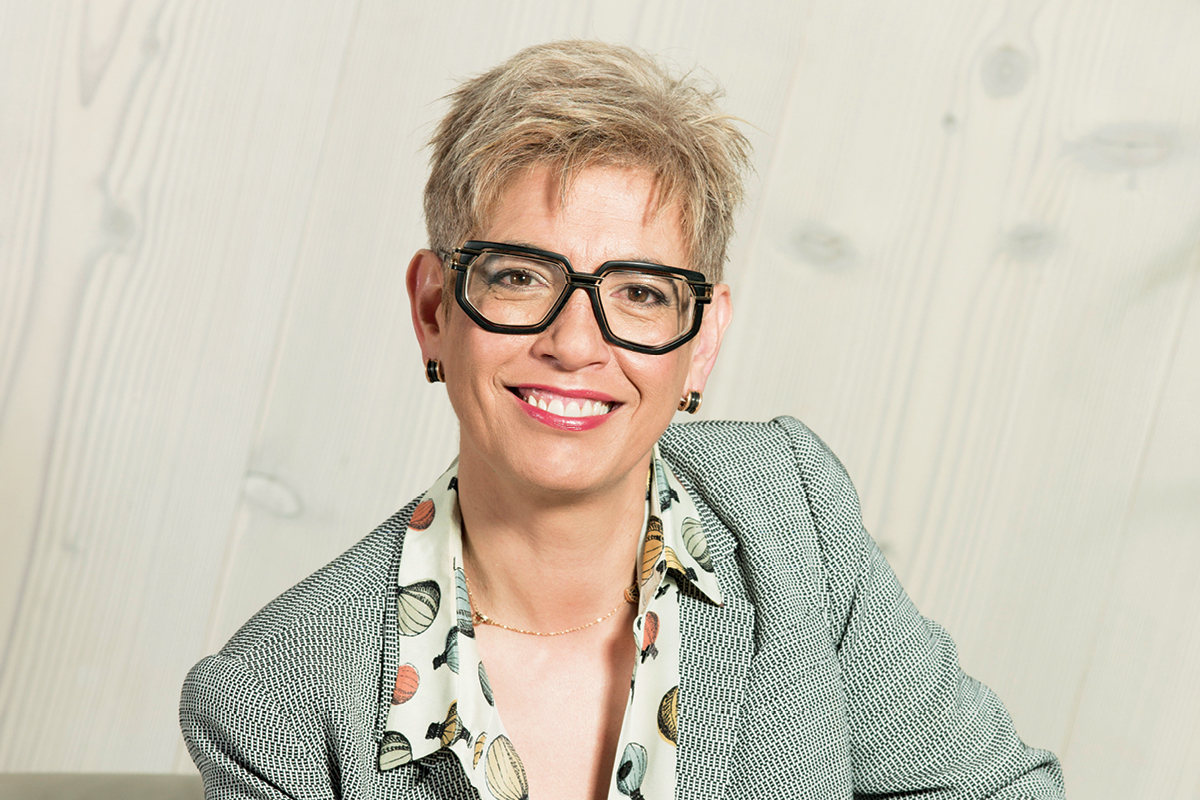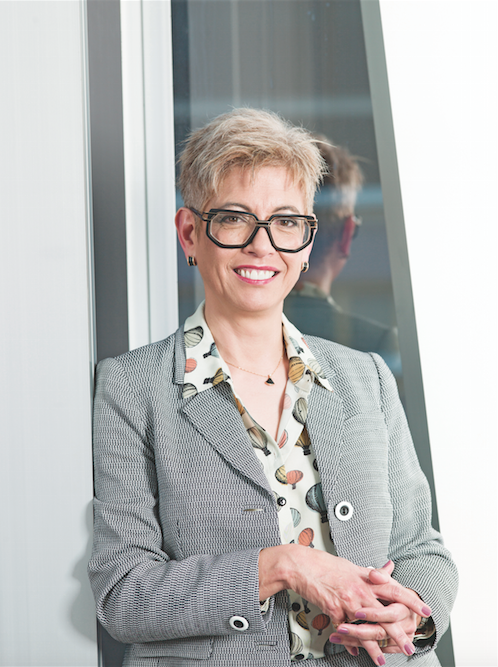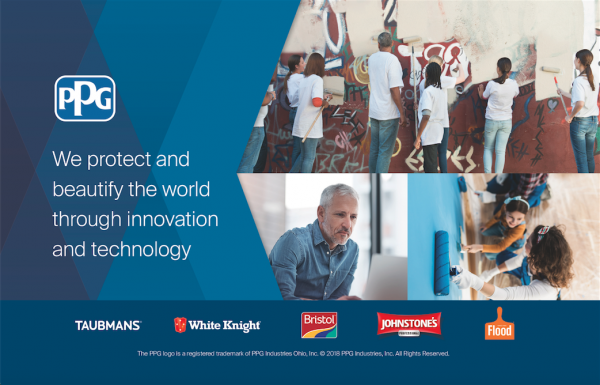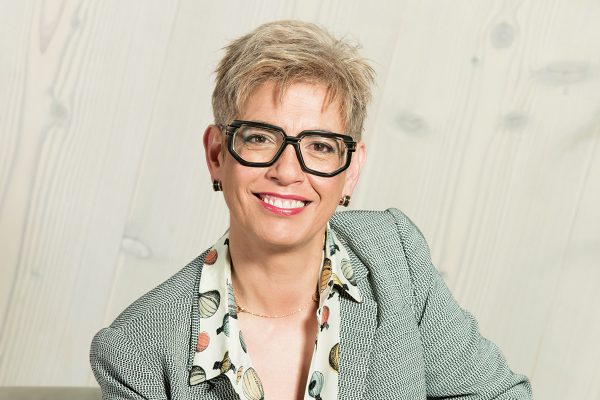For most of her career, Karen Gomez has worked in the private sector, but as the CEO of Paintback, she finds a not-for-profit organisation to be an exciting business environment to operate in. “I’ve worked with the largest listed companies in Australia,” she says.

“I’ve seen all kinds of models of business and I think what’s fascinating to me about the not-for-profit sector is having financial sustainability as well as doing good.” Paintback takes unwanted paint and packaging and repurposes these materials to stop them from reaching landfill and waterways.
At the heart of the organisation is collaboration; it teams up with various companies around Australia to deliver its services. First, it deals with the paint industry. “We work with the leading paint companies in Australia,” Karen explains.
“The first step was for the industry to set aside its competitive urges and come together and change the way it deals with end-of-life paint. We worked with councils who agreed to provide a collection site where people can drop off their paint, and we are now partnered with more than 100 councils to offer this service.”
The company also contracts with commercial businesses in its supply chain that offer collection services and more. “We work with many different people to build a network so that it’s convenient for people to return their paint,” Karen says.
“The other important thing we’ve done is collaborate with the state governments, because we needed to get consistent, harmonised regulation in place across Australia so that all trade painters and consumers could use this scheme.”
Our aim is to not only reduce landfill, but also to repurpose that paint and packaging into higher-value uses.
The bringing together of governments and industry to improve regulation was essential to gain a better outcome. It meant that Paintback could scale up across Australia and have a consistent operating model in every state.
“As simple as it is, anyone can drop off their paint at a Paintback site,” Karen says. “We then have contracts in place with waste companies and logistics companies to pick up the paint from the council sites and return it to centralised processing points.”
From these processing points, the material, depending on what it is, is sent for recycling or treatment. “Our aim is to not only reduce landfill, but also to repurpose that paint and packaging into higher-value uses,” Karen explains.
“To that end, we invest in research – with partners from universities to innovators and larger corporations – to discover how we can find new uses for leftover paint and extend the life of that paint beyond its original use.”
As a small team, it’s crucial that Paintback outsources and partners with organisations that have the assets, capability and know-how already in place. “By bringing partnerships and collaborations to the table, we were able to get up to speed very quickly,” Karen shares.
“My team specialises in a range of different operational areas, including logistics and collection, and we service a network that covers more than 85% of the population in Australia.”
The team also consists of people who’ve had global experience in product development; who understand business drivers, what makes products profitable and how to establish new markets. “This is exciting because we’re taking something people see as waste and showing them it’s a material,” Karen beams.

“We have great communicators on our team who help the community understand why change is needed.” Paintback’s work is making a tangible difference. It has seen 17 million kilograms returned to it since the work started in 2016, which is the equivalent of eight kilograms per minute.
“It’s essential that we can engage with the community because we can do all of this work,” Karen says. “But if no-one brings their paint back to us, it’s all been in vain.” Karen has been surprised to see that throughout the COVID-19 shutdown people have been focusing on getting repairs and maintenance done around the home.
Paintback has seen an increase in enquiries because of these DIY projects. “We’re focused on providing our service safely and responsibly,” Karen assures. “Fortunately, social distancing is something that can be adhered to when you’re dropping off at a collection point.”
Karen has learned a thing or two about leadership in a crisis and hopes to offer some advice to other leaders during this difficult time. “I was at Telstra during the Bali bombings in 2002,” she reflects.
“Telstra responded to the situation by offering support to the families affected. There was a whole range of other things too, and it was a severe problem to step into and help, but we had to mobilise many different resources.
“I think during the pandemic, collaboration is essential, but so is being able to empower people to make decisions on what is right for where they are,” she continues. “Although, ultimately, as a leader, there are times when you have to step in and make the decisions, knowing when to do that, and be accountable to them.”
The organisation’s mission is to “take the colourful past of paint and turn it into a brighter future”. It has created a service where people can dispose of their paint responsibly. For Karen, the real game changer will be to find new markets and new products for repurposing the paint.
“I think that’s the core of the future benefits that Paintback can deliver,” she says. “Our core values are to be innovative, collaborative, responsible and inclusive. As a purpose-driven organisation, these values guide us when things are challenging.”
One of Karen’s primary aspirations is to have the backing of the industry and the supply chain to find opportunities to extend the life of unwanted paint and be at the forefront of the circular economy in Australia.
“We can’t underestimate how much of the supply chain is designed around the linear economy,” she explains. “So we have to collaborate with the right partners who are willing to work through the challenges, roll with the punches and keep finding those opportunities.”
Proudly supported by:




